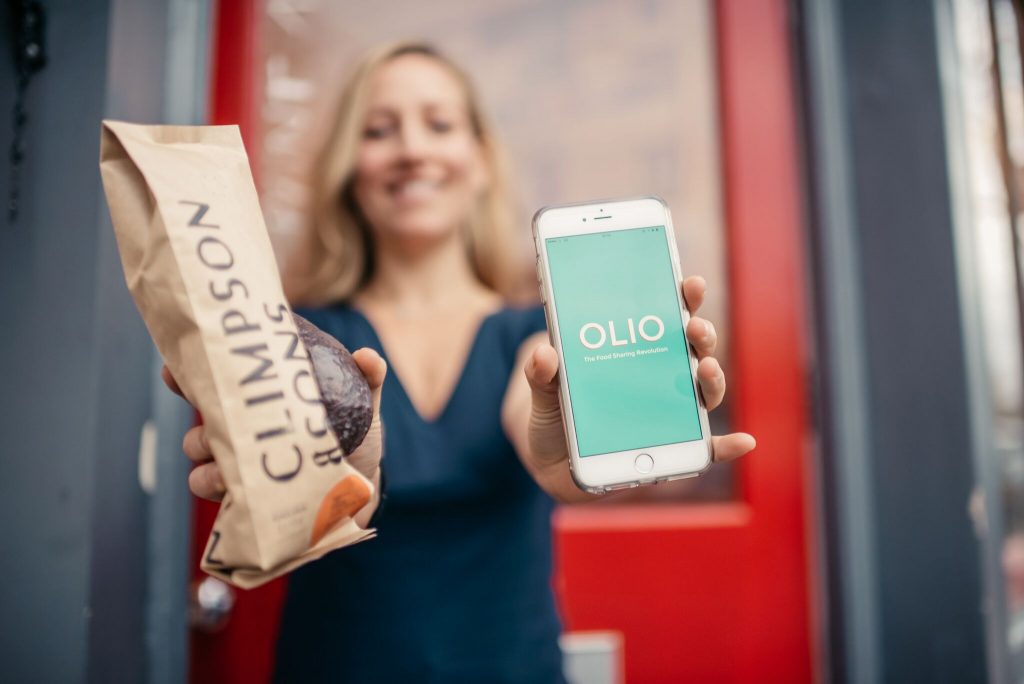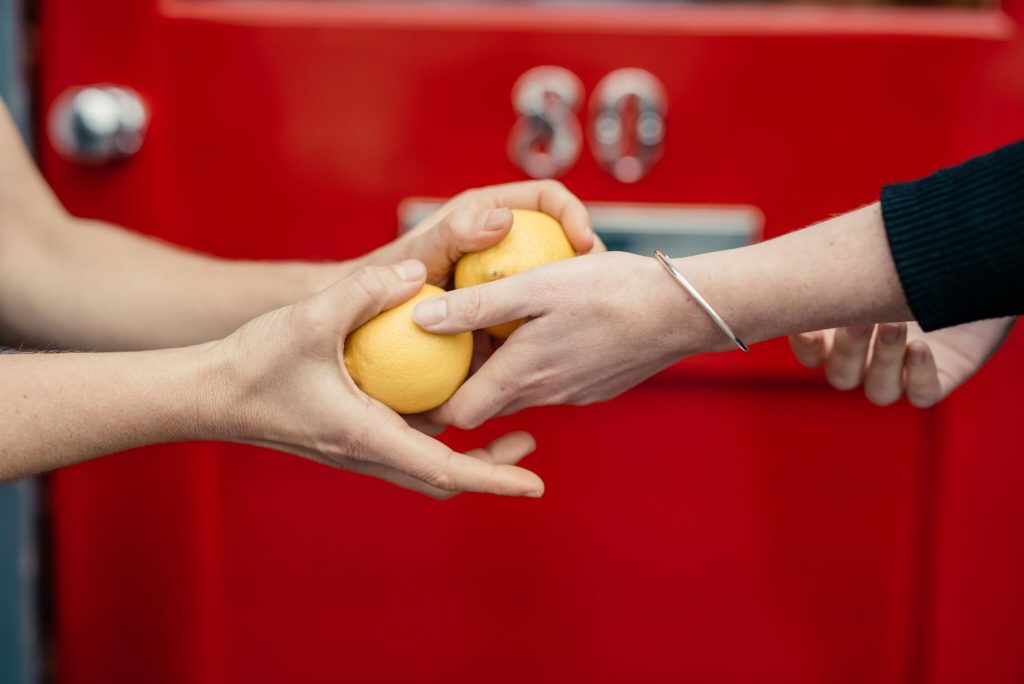
Food waste is a bigger issue than most people, including myself, ever realized. I am a nutritionist who makes a concerted effort to buy local, organic food and support farmers in my area who practice sustainable farming and treat their animals right. I still have found myself in many situations with too much food that I felt bad throwing away. However, there weren’t many options available that I knew of. Many cities and even states don’t have composting programs in place.
In our 8th podcast interview with the co-founder of OLIO, Saasha Celestial-One, I was shocked to find that not only is throwing away food a wasteful practice, but it is also contributing to the huge global issue of climate change. I also felt inspired, humbled, and empowered to find out that there was something I could do about it.
OLIO, co-founded by Tessa Cooke and Saasha Celestial-One, provides a “free app that connects neighbors with each other and with local businesses so surplus food can be shared, not thrown away.” Tessa grew up in North Yorkshire, England on her parents dairy farm. She worked hard on the farm and has first-hand experience in food production, knowing how much work it takes to make food and why it should not be wasted. Saasha grew up with parents who were “hippy entrepreneurs” and taught her how to be quite resourceful, learning how to salvage and sell many items most people would have considered “trash”. Listen to the podcast episode for the full story on OLIO and Saasha.
OLIO’s mission is to unlock the value of food that is wasted in the home and in local community – ‘value’ meaning nutritional, economic, social and environmental value.
Saasha
Saasha is very passionate about food sharing, and her reasons for that passion are very clear after hearing all the statistics and her backstory. I was saddened to learn about how destructive food waste is to the environment, but also how many people could be fed if we just started sharing instead of wasting food.
It’s not just the food that goes to waste it’s all the resources that went into making that food. The water, the labor, the land, the energy.
Saasha
- “800 million people go to bed hungry every night. That is 1 in 9 people on the planet who are starving or malnourished. Each and every one of them could be sufficiently fed on less than a quarter of the food that is wasted in the USA, UK and Europe each year.”
- “Between 33-50% of all food produced globally is never eaten, and the value of this wasted food is worth over $1 trillion.”
These are truly sad statistics and it is quite alarming to think about how very little is being done to fix this problem. Also, the environmental impact is undeniable of how we are wasting resources and contributing to climate change through the emission of greenhouse gas from wasted food in landfills.
When this food goes to landfill, it converts to methane which is 23x more potent than carbon dioxide in terms of trapping heat in the atmosphere.
Saasha
- “Methane (CH4) is generated in landfills as waste decomposes and in the treatment of wastewater. Landfills are the third largest source of CH4 emissions in the United States.”
- CH4 accounts for 10% of U.S. Greenhouse Gas emissions and 16% Globally
- “If food waste were a country, it would be the 3rd largest emitter of greenhouse gases (after China & the USA).”
- “25% of the world’s freshwater supply is used to grow food that is never eaten.”
Yes, This Is Your Problem
I naively thought, before doing all this research and interviewing Saasha, that grocery stores and big industries must be the ones to blame…
- “However, the reality is that in the ‘developed’ world, more than 50% of food waste takes place in our homes. In contrast, less than 2% of food waste takes place at the retail store level (though supermarket practices are directly responsible for much food waste elsewhere in the supply chain.)”
- In the US, the average family wastes $2,275 worth of food per year.
- “2.3 billion people are joining the planet by 2050 – this will require a 60-70% increase in global food production. Or we can just stop throwing away our food!”

We have become increasingly disconnected, as a society, from not only our food and all that goes into producing it, but also from our neighbors and our community. Somehow these two are intertwined and allow us to truly enjoy them. You really can’t have one without the other, at least not if you are trying to get the most value out of each. After all, what is a gathering of friends or family without food? And what good is food if it isn’t shared with someone else.
Since 50% of food waste happens in our homes, that means 50% of the problem is actually within our power to change. It’s encouraging to know that we can really do something about this problem that affects us on so many levels. We can start a food sharing revolution that goes global. Here’s how you can help…
Get Involved!
OLIO has 3 different volunteer opportunities:
- Become an Ambassador for OLIO (grassroots volunteer)
- Become a Food Waste Hero
- Become a City Champion
Advice from Saasha on how to do good in your community!
- Find a buddy!
- Start small and go from there!
Listen to the Podcast with Saasha here: (also available on iTunes and Stitcher)



